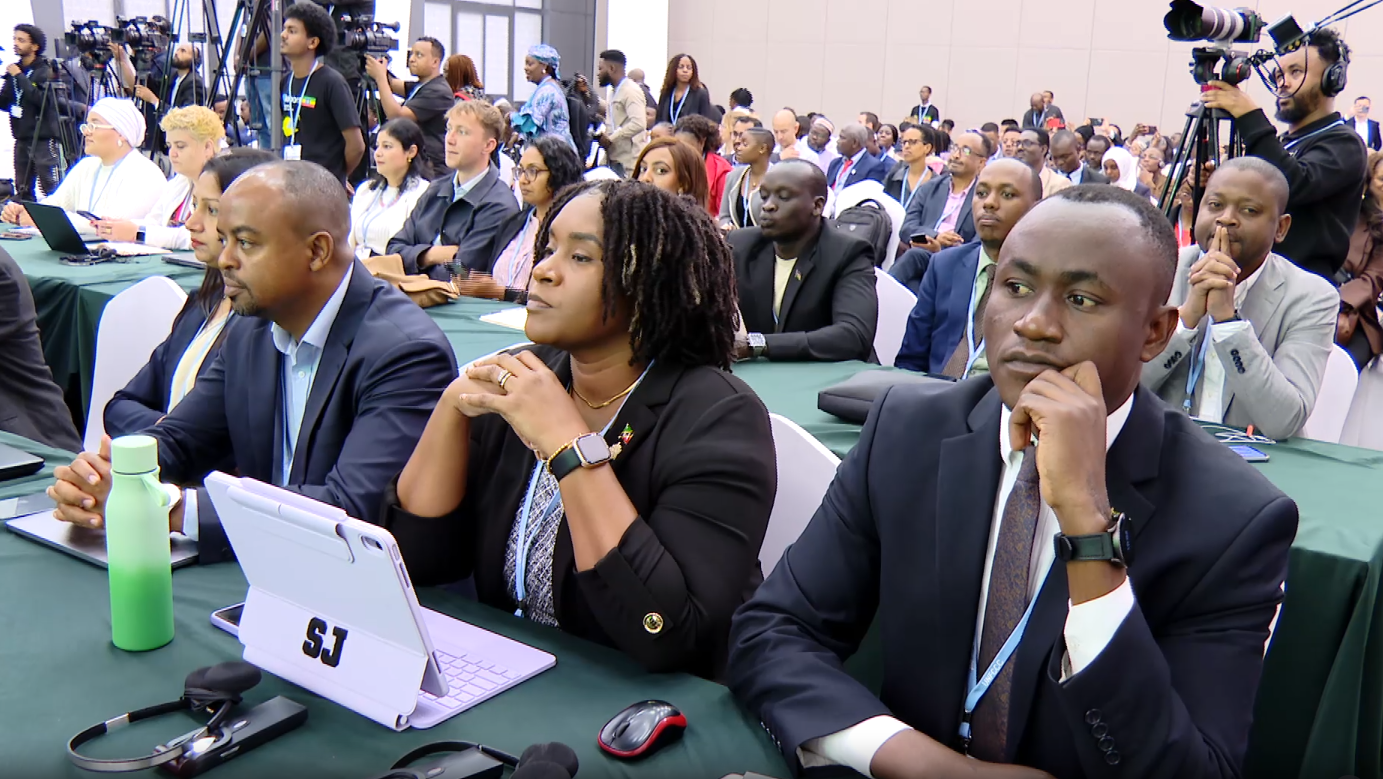UN Climate Week in Addis Ababa Highlights Urgent Need for Climate Finance - ENA English
UN Climate Week in Addis Ababa Highlights Urgent Need for Climate Finance

Addis Ababa, September 3, 2025 (ENA) -- As the Second United Nations Climate Week officially opened in Addis Ababa today, leaders have underscored Africa's pressing demand for climate finance and urged the global community to take swift action.
In his opening remarks at the event, President Taye Atske Silassie of Ethiopia underscored the importance of the “Baku to Belém Roadmap”, aimed at mobilizing 1.3 trillion USD annually by 2030, as essential for investment in a sustainable future.
Noting the grappling of many countries with unsustainable debt and an outdated global financial architecture, President Taye called for tangible commitments to support climate resilience.
The President urged all stakeholders to eliminate bureaucratic barriers that impede climate financing, noting that extreme weather events are pushing millions into poverty and damaging vital infrastructures.
Highlighting Africa's unique position, he further pointed out that while the continent contributes minimally to global climate change, it disproportionately suffers its effects.
He advocated for climate action that drives development, creates jobs, and enhances food security, stressing that Africa should not have to choose between economic growth and environmental stewardship.
In preparation for the upcoming Second Africa Climate Summit, also to be hosted in Addis Ababa, President Taye announced plans to focus on key issues, including the utilization of critical minerals for clean technology, integrated electricity markets, and empowering women and youth in climate leadership.
According to him, Ethiopia's commitment to combating climate change is emphasized through initiatives like the Green Legacy Initiative, which has seen the planting of 47.5 billion trees since its launch in 2019.
The President also highlighted Ethiopia's shift from being a net importer to achieving wheat self-sufficiency through its Climate Smart Wheat Initiative, and the imminent inauguration of the Grand Ethiopian Renaissance Dam (GERD), set to generate over 5,000 megawatts of renewable energy.
President Taye expressed hope that the outcomes of this gathering will influence future climate summits, including COP30 in Brazil.
"Let this be the moment we move from dialogue to delivery," he concluded on the participants by inviting them to engage in shaping Africa's climate leadership while enjoying the warmth and hospitality.
UN Climate Change Deputy Executive Secretary, Noura Hamladji, emphasized that overcoming this crisis requires cooperation and solidarity, stating that "there are no solutions at the scale needed without collaboration."
Climate weeks are about harvesting innovation and driving implementation, she explained, underscoring the need to translate pledges into actionable solutions that yield tangible benefits for communities. "The urgency for such solutions is palpable, not just in Africa, but worldwide."
To make meaningful progress, the UN Climate Change Deputy Executive Secretary stressed the necessity of increased financial flows to developing countries, calling for the pledge to raise 1.3 trillion USD annually by 2035 move from aspiration to reality.
Hamladji highlighted Africa's potential to lead by example, citing successful initiatives such as community mini grids, recycling innovations in Kenya, and Ethiopia's Green Legacy Initiative, which has already planted billions of trees.
These actions not only inspire but also promise stronger economic growth, job creation, improved living standards, and cleaner energy solutions.
For Hamladji, the timing of this Climate Week, alongside the upcoming Africa Climate Summit, is critical for fostering the collective action needed to address the climate crisis effectively.
African Union Commission Chairperson Mahamoud Ali Youssouf, on his part, highlighted the urgency of the moment and reaffirmed the African Union's commitment to strong leadership and partnerships on this crucial journey.
He also called on the international community to support Africa by ensuring that climate finance is equitable, technology transfer is effective, and capacity building is prioritized.
The insights and momentum generated during this Climate Week will be instrumental, the chairperson said, urging for a unified African voice in the pursuit of climate implementation, equitable transitions, and resource mobilization ahead of COP30.